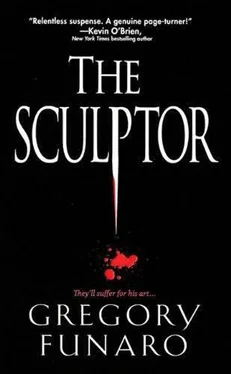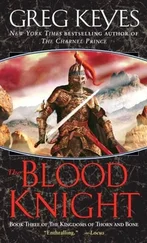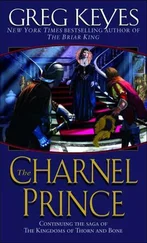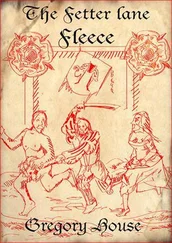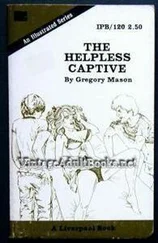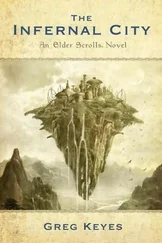“About six years ago.”
“Was this before or after your tenure?”
“Just before.”
“And you have been requiring your book for your class for how long now?”
“It’ll be five years next fall.”
“I’d like you to take a moment,” Agent Sullivan said with a calculated change of tone. “Take a moment and ask yourself if you’ve ever had a student during that time-or at any time, for that matter-that struck you as particularly odd. One that said or did or perhaps even wrote something out of the ordinary-something that went beyond a creative extreme into the realm of-well, something else. Perhaps a drawing or an essay or even an e-mail that you found particularly disturbing.”
Cathy’s brain began to spin with a kaleidoscope of faces-nameless, dark, and blurry-and the art history professor felt a wave of panic upon realizing she could not recollect even what her current students looked like.
“I can’t think of anyone,” she said finally, her voice tight. “I’m sorry.”
“What about a colleague? Someone in the department? Anybody ever mention to you that they had a student by whom they felt threatened?”
“Not that I can recall.”
“Have you ever felt threatened by one of your colleagues in your time at Brown or at Harvard? Anyone with whom you didn’t get along? Perhaps someone who was fired? Someone who may have had a grudge against you?”
“No, not at all.”
“Any of your students ever make a play for you?” asked Agent Markham. Despite the gist of his question, Cathy found his sudden presence in the conversation a welcome relief from the prosecuting attorney behind her. “Any of them ever go beyond what could be termed as innocent flirting? Something that was perhaps a little more aggressive?”
Cathy had always been a bit shy, but never a bit stupid; and even though before her husband she had dated only a handful of men, had only one semi-serious relationship while at Harvard, she was not ignorant to the “vibe” she got from some of her male students. However, in her twelve years at Brown, only two of them ever got up enough nerve to ask her out for a cup of coffee-and both times Steven Rogers’s dutiful wife politely declined.
But then there were the notes.
“Yes,” Cathy began. “About five and a half years ago. At the beginning of the fall semester-just after my mother died-I started receiving some anonymous notes.”
Cathy saw Markham catch his partner’s eye in the rearview mirror.
“Love notes?” Sullivan asked.
“Not really. They were little quotes at first, one-liners that I took to be, well, gestures of encouragement and support in the wake of my mother’s death. Then later on I received the sonnet.”
“A sonnet?” asked Markham. “You mean like a love sonnet? A Shakespearean sonnet?”
“Not a Shakespearean sonnet, no, but one written by Michelangelo.” Markham looked confused. “In addition to being a painter and a sculptor, Michelangelo was an accomplished, albeit second-rate poet. He wrote hundreds of poems on subject matter across the board. However, the most famous of his poems are the sonnets he wrote to a young man with whom he was in love-a young man by the name of Tommaso Cavalieri. The sonnet that I received was originally written for Cavalieri around 1535 I think, during the first couple years of their friendship when Michelangelo was about sixty years old and Cavalieri in his early twenties.”
“So how many notes would you say you received?” asked Sullivan.
“Four-one sonnet and the three little quotes, which were also written by Michelangelo. I got one every other week or so for about a month and a half-at different times, in an envelope under my office door when I was out. Then they just stopped appearing. And I haven’t received another note since.”
“You said the notes were anonymous. Did you ever find out who sent them?”
“No, I did not.”
“Any ideas?”
“The handwriting was feminine. And as Michelangelo’s sonnets to Cavalieri were of a homosexual nature, I assumed that my admirer was a female.”
“A homosexual nature?” asked Markham.
“Yes. It has been well established for some time now that Michelangelo was a homosexual. The only argument thrown around academic circles nowadays is whether or not he was exclusively a homosexual.”
“I see,” said Markham. “And, if I may ask-the content of the sonnet you received, did it deal with unrequited love?”
“Sort of. There’s every indication that Cavalieri actually returned Michelangelo’s affection, but the evidence also supports that the two never consummated the relationship. The sonnet therefore dealt with more of an unattainable spiritual love than any sort of carnal desire-the kind of love that could not be pursued or even named in Michelangelo’s time. And even though the two remained the closest of friends, the relationship with Cavalieri caused Michelangelo great anguish until the artist’s death.”
“Do you still have these notes?” asked Markham.
“I kept them for a while,” Cathy said, embarrassed. “But when I showed them to my husband, he asked that I get rid of them. I did. That was foolish of me, I know. I shouldn’t have listened to him.”
If only you didn’t listen to him the night he proposed…
“Do you remember the title of the poem this person sent you? Was it numbered or something like Shakespeare’s sonnets?”
“Scholars have numbered some of them, I think, but not with the kind of agreed upon consistency as Shakespeare’s sonnets. I could be wrong, as it is not really my area of expertise. But I can tell you for sure that there was no number or title on the poem I received. I remember that. If you’d like, I can give you the gist of it and the quotes-”
“But you’d recognize both the poem and the quotes if you saw them?”
“Yes.”
Agent Markham switched off the recorder.
“Sullivan, call your tech-guy down at the crime scene. Make sure he has a laptop online and ready for us so Dr. Hildebrant can conduct a search on the Internet. And see if you can get someone to dig up a hardcopy of Michelangelo’s poetry, too.”
“Yes, sir.”
“I’m also going to need class rosters for Dr. Hildebrant and all her colleagues in the History of Art and Architecture Department going back over the last ten years. Hell, get me a roster for every class with art or history in the title. It’s Sunday, but get someone on the go ahead today-so we can be there when the offices open tomorrow.”
“Yes, sir,” said Sullivan, and began dialing her cell phone.
“Agent Markham,” Cathy said, the discussion about Michelangelo had grounded her, made her feel more like herself. “I realize that, because my name was on the base of that wicked thing, you think I might be somehow connected to this psychopath. But do you really think the person who sent me those notes could be the same person who murdered Tommy Campbell and that little boy? Couldn’t it have been just some nut job who read my book? I mean, do you really think that this person could have been one of my students?”
“I don’t know,” said Markham. “But Tommaso is Italian for Thomas. And I’ll tell you that, at the very least, I think it’s a bizarre coincidence that you were given a poem originally intended for a young man named Tommy, and that you now have a statue of a young man named Tommy dedicated to you as well.”
Cathy suddenly felt afraid; but more so she felt stupid-felt her cheeks go hot for not making the connection between the two names when she first mentioned Cavalieri.
But mostly Cathy felt stupid because Special Agent Sam Markham had.
The carriage house loft was covered in soundproof foam that ran up the walls to the peak of the low-pitched ceiling. The windows had long ago been blocked out, and even when all the fluorescent lights were on, the black of the foam bathed the room in an overwhelming and seemingly infinite darkness. During his renovations, The Sculptor had purposely exposed the building’s trusses to give the space a little more height. These, too, were painted black, and at the far end of the loft, where the original carriage hoist had hung, The Sculptor outfitted the beams with an automatic winch system. This allowed the old mortician’s table to be raised and lowered through a trap à la Frankenstein ; and sometimes, when he was feeling a bit silly, The Sculptor would allow himself a ride between floors.
Читать дальше
